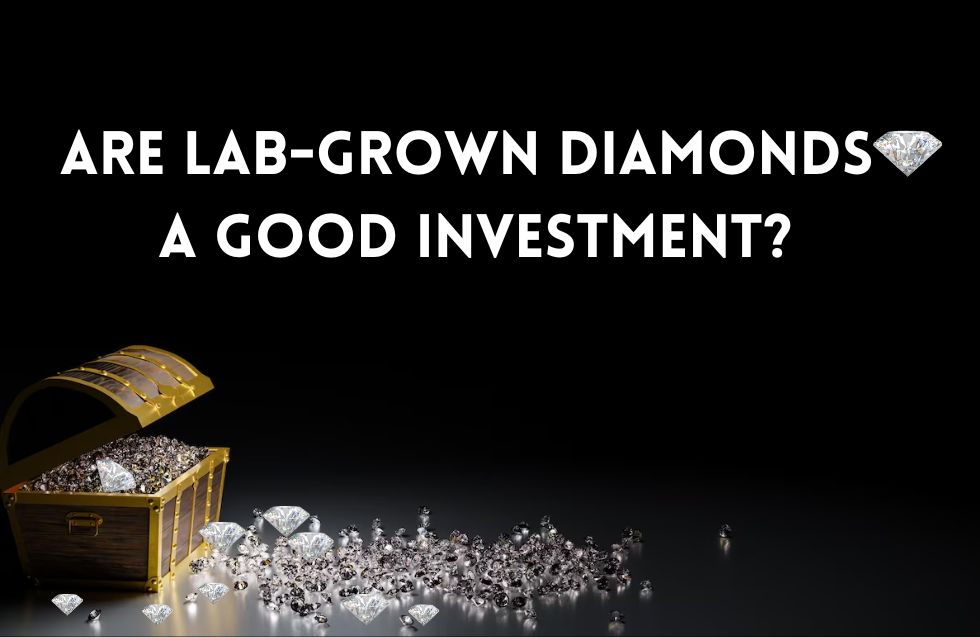When considering an investment in diamonds, traditional, earth-mined stones have long held an allure as enduring assets. However, lab-grown diamonds are becoming increasingly popular as a sustainable, ethical, and more affordable alternative. But do lab-grown diamonds have the same investment potential? In this post, we’ll break down the factors that impact lab-grown diamond value and whether they should be considered a worthwhile investment.
What Are Lab-Grown Diamonds?
Lab-grown diamonds are made in a controlled environment using advanced technology that replicates the natural process of diamond formation. They are chemically, physically, and optically identical to mined diamonds and can be grown in weeks instead of millions of years. However, because they are manufactured rather than mined, lab-grown diamonds have a few key distinctions in terms of rarity, environmental impact, and, notably, market value.
How Are Lab-Grown Diamonds Priced?
The cost of lab-grown diamonds is typically 20-40% less than mined diamonds of similar quality. This price gap reflects the difference in rarity and production costs. Lab-grown diamonds, although beautiful and indistinguishable from natural diamonds to the naked eye, lack the same scarcity, which affects their market value. Advances in technology also mean production is becoming more efficient, which could drive lab-grown prices even lower in the future.
The Resale Value of Lab-Grown Diamonds
One critical consideration for investors is resale value. Unlike mined diamonds, which may hold or even appreciate in value over time, lab-grown diamonds generally have a much lower resale value. Many jewelers do not buy back lab-grown diamonds, and those that do often offer significantly less than the purchase price. Because lab-grown diamonds are easily reproducible, they do not carry the same resale or appreciation potential as their natural counterparts, making them less viable as a financial investment.
Why Lab-Grown Diamonds Might Not Appreciate Over Time
Lab-grown diamonds, while innovative and eco-friendly, are not a finite resource like natural diamonds. Their abundance impacts market demand and resale value. Mined diamonds benefit from intrinsic rarity, creating a certain scarcity value that drives appreciation. Since lab-grown diamonds can be produced in large quantities, they don’t benefit from this scarcity factor.
Furthermore, technology is improving and becoming more cost-effective, leading to more production of lab-grown diamonds. This could lead to price depreciation in lab-grown diamonds over time, which is not ideal for investment purposes.
Are There Non-Financial Reasons to Buy Lab-Grown Diamonds?
While they may not hold significant financial investment value, lab-grown diamonds can be a meaningful purchase for non-financial reasons. These diamonds offer a sustainable, environmentally friendly choice with a lower carbon footprint than mined diamonds. For buyers interested in ethical consumerism, lab-grown diamonds are a guilt-free option, free from the concerns surrounding conflict diamonds and environmental damage associated with mining.
They also allow consumers to purchase a higher-quality or larger stone at a more affordable price, making them an attractive option for those who value beauty and brilliance over long-term financial appreciation.
Lab-Grown Diamonds vs. Other Alternative Investments
If you’re drawn to tangible assets but hesitant about mined diamonds, consider alternatives like colored gemstones, vintage jewelry, or even precious metals. These assets can offer better resale value and hold greater potential for appreciation, though they each come with their own risks and considerations.
Conclusion: Are Lab-Grown Diamonds a Good Investment?
In short, lab-grown diamonds are not typically a good financial investment if your goal is long-term value appreciation. They lack the rarity and perceived intrinsic value of mined diamonds and have a lower resale value. However, if your primary interest lies in owning a beautiful, sustainable diamond rather than profiting from it, then a lab-grown diamond can be an excellent choice.
Lab-grown diamonds offer a modern, eco-conscious option for consumers looking to balance aesthetics with sustainability. But for those looking to make a traditional, enduring investment in gemstones, mined diamonds, and other rare gems remain a stronger choice.













